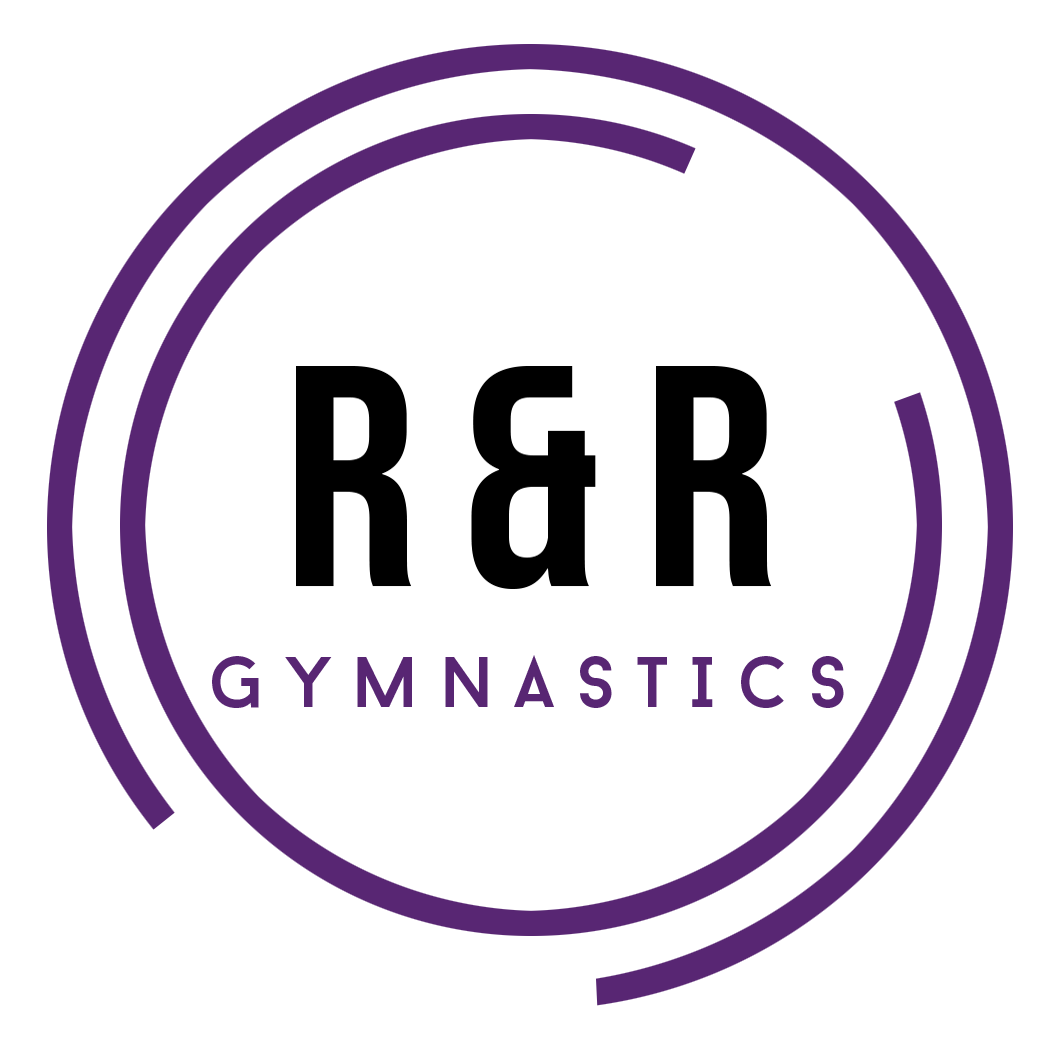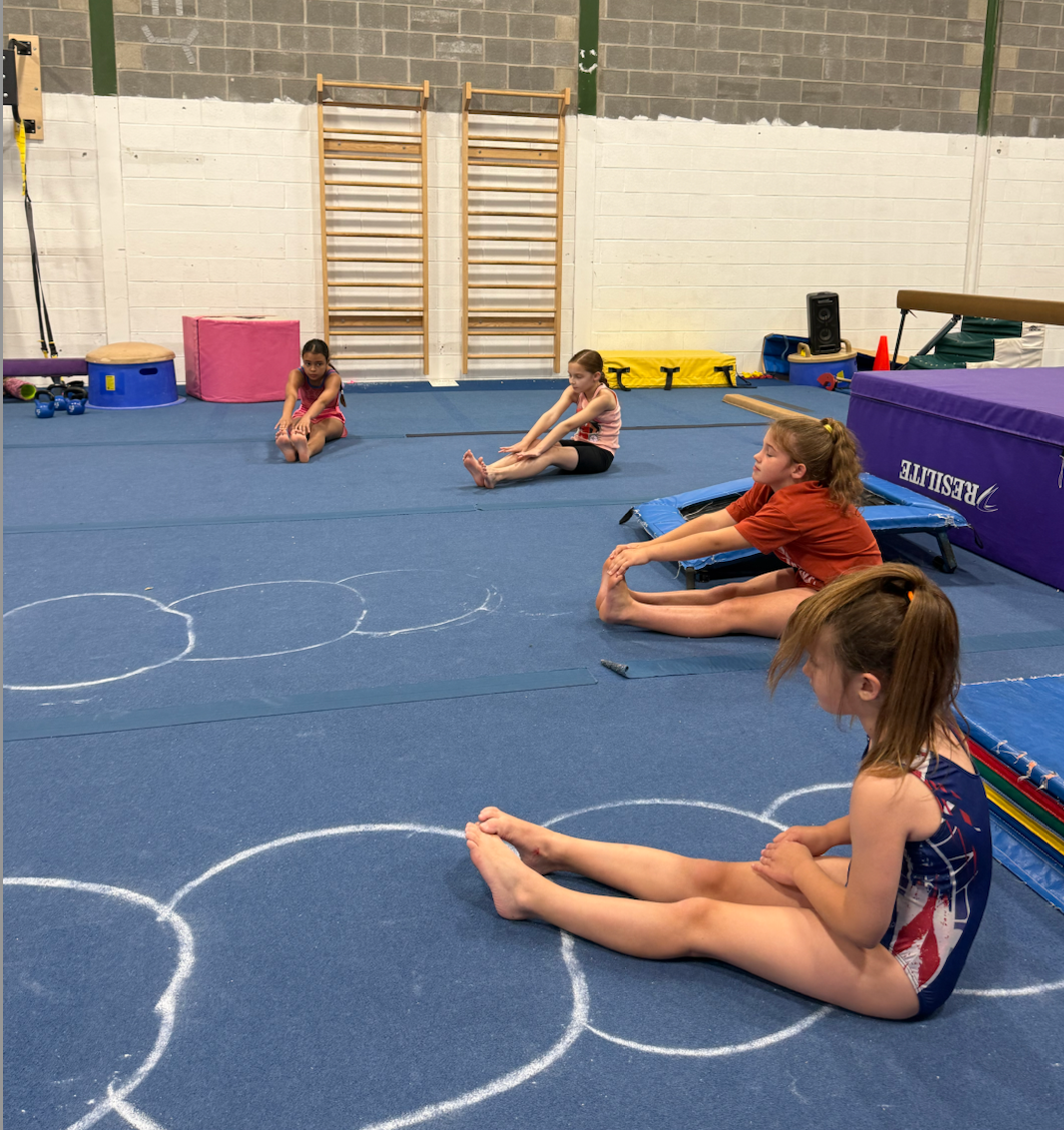Understanding the Levels of Gymnastics
Like any other sport, competitive gymnastics has rules, regulations, and levels. Gymnastics levels are used to arrange different skills into difficulty levels. Ultimately, becoming a better and well-skilled gymnast means going through the levels and mastering the skills every step of the way. Here's all you need to know about gymnastics levels.
Like any other sport, competitive gymnastics has rules, regulations, and levels. Gymnastics levels are used to arrange different skills into difficulty levels. Ultimately, becoming a better and well-skilled gymnast means going through the levels and mastering the skills every step of the way. Here's all you need to know about gymnastics levels.
What are Levels in Gymnastics?
Gymnastics levels are the status of a gymnast according to the development of their skills.
There are two gymnastics programs run by USA Gymnastics — each with its separate sets of levels. They are the Junior Olympic (JO) Program and the Xcel Program . However, the main gymnastics program used in competitive gymnastics is the JO Program, and it's divided into 10 gymnastics levels.
To be categorised as a gymnast of a level and participate in the meet of that level, gymnasts must master certain skills and meet certain requirements. There are four sets of skills in competitive gymnastics: vault skills, bar skills, floor skills, and beam skills.
LEVELS 1-3
Levels 1-3 are gymnastics levels used to prepare gymnasts for competitions. They are optional levels, so gymnasts at these levels do not compete. Instead, they have routines that they could compete in while they master their skills.
Level 1 Gymnastics
Level 1 gymnastics aims to teach a gymnast the very basics of the sport. It involves rudimentary routines and skills that will be used as the basis of all other skills at higher gymnastics levels. It involves skills such as jumping, rolling, stretching, and simple dismounts.
Level Requirement
To be a level 1 gymnast, gymnasts must be able to perform the skills that will be outlined in the next section. Also, they must be at least 4 years old to participate in a level 1 meet.
Level 1 Gymnastics Skills
A level 1 gymnast must be able to perform the following skills under four skill sets:
Vault Skills
-
Basic jump onto mat
-
Kick up into a handstand
-
Fall to flat back
Beam Skills
-
Arabesque to 30 degrees
-
Jump to front support mount
-
Stretch jump
-
Needle kick
-
Relevé lock stand
-
A cartwheel dismount to ¾ handstand.
Floor Skills
-
Cartwheel
-
Handstand
-
Forward and backward roll
-
Stretch jump
Bar Skills
-
Pullover
-
Cast
-
Back hip circle
-
Underwing or sole circle dismount.
Level 1 Gymnastics Meet
Since level 1 is not a highly competitive level, its meet is an informal affair that may be skipped. Usually, the gymnastics trainer is the one who determines whether a gymnast is ready for the next level. As soon as a gymnast can perform level 1 skills perfectly, they can move on to the next level.
Level 2 Gymnastics
Level 2 gymnastics is quite similar to level 1. A level 2 gymnast is required to perform skills that are only slightly more difficult than level 1 skills.
Level Requirements
To be a level 2 gymnast, gymnasts must be able to perfectly execute level 1 gymnastics skills as well as master the level 2 skills in the next section. Also, they must be at least 5 years old to participate in a level 2 meet.
Level 2 Gymnastics Skills
A level 2 gymnast is required to be able to perform and master these skills:
Vault Skills
-
Jump to handstand from a mat stack and a fall to flat back
Beam Skills
-
Jump to front support mount
-
Arabesque to 30 degrees
-
Stretch jump
-
Half-pivot turn
-
Dismount of cartwheel to side handstand
Floor Skills
-
Handstand (hold it for at least a second)
-
Bridge back kick over
-
Split jump and split leap (with 60° leg separation)
-
Backward roll to push-up position
-
90 degrees heel snap turn
Bar Skills
-
Cast
-
Pullover
-
Back hip circle
-
Glide swing
-
Mill circle
-
Underswing dismount
Level 2 Gymnastics Meet
Similar to a Level 1 meet, a level 2 meet is less formal and may often be skipped because it's not a required competitive level. Some gyms will however require younger athletes to develop longer at this level in order to provide a strong fundamental foundation on which to build. As soon as a gymnast has mastered level 2 skills, she is qualified to move on to Level 3.
Level 3 Gymnastics
Level 3 gymnastics is also an optional level. However, it's the level just before the first true compulsory level where gymnasts are mandated to compete. In that way, coaches and trainers start preparing gymnasts for competition in the compulsory gymnastics levels by helping them learn and master dictated routines in order to score a minimum of 32 all around.
Level Requirements
Gymnasts must have perfected level 2 gymnastics skills and mastered level 3 skills to be classified as level 3 gymnasts or take part in level 3 gymnastics meets. They must also be at least 6 years old to participate in a level 3 gymnastics meet.
Level 3 Gymnastics Skills
To qualify as a level 3 gymnast, a gymnast must master the following skills:
Vault Skills
-
Handstand with a flat back, to fall onto a stack of mats
Beam Skills
-
Split jump and straight jump to 90 degrees
-
Heel snap turn to 180 degrees
-
Pivot turn
-
Cartwheel to side handstand dismount, with a ¼ turn
Floor Skills
-
Handstand forward roll
-
Handstand to bridge kickover
-
Split jump and leap to 90 degrees
-
Round-off to back handspring
-
Backward roll to push-up
Bar Skills
-
Front and back hip circle
-
Glide swing and pullover
-
Single leg squat
-
Underswing or stretch jump dismount.
Level 3 Gymnastics Meet
Unlike levels 1 and 2 meets, a level 3 meet involves a measure of seriousness as it determines whether or not a gymnast is good enough to move on to level 4 and start competing. Performances are graded and a minimum score of 32 AA (All Around) qualifies participants for the next level.
LEVELS 4-6
Levels 4-6 are compulsory levels in competitive gymnastics. This means that a gymnast must learn a specific routine for each meet of each level and attain a minimum mobility score to qualify for the subsequent gymnastics levels.
Level 4 Gymnastics
This is the first compulsory level for competitive gymnastics. Gymnasts at this level are required to master compulsory and unified routines.
Level Requirements
To be categorised as a level 4 gymnast and compete in a level 4 meet, gymnasts must have perfected all skills from gymnastics levels 1-3 and mastered all level 4 routines. They must also be at least 7 years old.
Level 4 Gymnastics Skills
A level 4 gymnast must be able to perform and master the following skills:
Vault Skills
-
Front handspring
Beam Skills
-
Cartwheel
-
Split leap and split jump with 120 degrees leg separation
-
Cross handstand
-
180 degrees squat turn
-
Cartwheel dismount to a side handstand with ¼ turn
Floor Skills
-
Straddle jump with 120 degrees split
-
Back extension roll
-
Front handspring step-out
-
Back walkover
-
Straight jump with 180 degrees turn
-
Round off two back handsprings.
-
Leap with 120 degrees leg separation
Bar Skills
-
Straddle or pike glide kip
-
Cast to horizontal
-
Back hip circle underswing
-
Squat on, pike on, or backward sole circle
-
Long hang kip
-
Tap swing with 180 degrees turn dismount
Level 4 Gymnastics Meet
Level 4 Meet is the first competition that a gymnast faces. The meet aims to test the mastery of a gymnast in level 4 gymnastics skills, with scores assigned for the execution of each skill.
Gymnasts will be required to put on an official leotard and abide by all rules of the competition. At the end of the performance, they'll will be awarded a total score. They need a minimum of 34AA to qualify for level 5.
Level 5 Gymnastics
Level 5 gymnastics is the second compulsory level in competitive gymnastics. The skills and routines at this level are similar to level 4, but they're more complex and difficult to execute.
Level 5 Requirements
Before gymnasts can be classified as level 5 gymnasts, they must have perfected level 4 routines and scored a minimum of 34AA at a level 4 meet. They must master dictated routines to participate in a level 5 meet and qualify for level 6. Also, they must be at least 7 years old at the time of the level 5 meet.
Level 5 Gymnastics Skills
Gymnasts must perform routines that involve the following skills:
Vault Skills
-
Front handspring
Beam Skills
-
Back walkover or back extension roll
-
Front walkover or back handspring step-out
-
Straight leg leap with 150 degrees leg separation
-
Split jump, sissone
-
Full turn
-
Cartwheel
-
Back tuck dismount
Floor Skills
-
Straddle jump
-
Stretch jump with full turn
-
Front handspring step-out
-
Back extension roll
-
Split leap with 150 degrees leg separation
-
Full turn
-
Front aerial or aerial cartwheel
-
Round off back handspring back tuck
Bar Skills
-
Kip
-
Squat on or back sole circle
-
Long hang kip
-
Cast to above horizontal
-
Back sole circle to clear front support or back stalder circle to clear front support
-
Long hang pullover
-
Tap swings
-
Flyaway dismount
Level 5 Gymnastics Meet
The rules for level 4 meets apply to level 5 meets. At the end of the competition, gymnasts must have scored at least 34AA to advance to level 6.
Level 6 Gymnastics
Level 6 Gymnastics is the entry-level optional competition in gymnastics. In optional competition, there are no predefined routines. Gymnasts are free to create their routines with a combination of different level 6 gymnastics skills. Rather than the specifics of their routines, they're judged by the execution of the skills and their overall routine,
From Level 6, gymnastics skills are graded according to difficulty levels, and the routines executed at meets of subsequent levels must possess a certain number of skills with different difficulty levels. An "A" skill is the least difficulty level, while an "E" skill is the highest difficulty level.
Level 6 Requirements
For gymnasts to compete in a Level 6 meet, they must have scored at least a 34AA in level 5 meets. They must master level 6 gymnastics skills and have 5 "A" skills and 1 "B" skill in their routine. Gymnasts must be at least 7 years old to compete in a Level 6 meet.
Note: Level 6 is the only optional level that may be skipped if a gymnast scored 32AA in a level 5 meet.
Level 6 Gymnastics Skills
The following are the skills that a level 6 gymnast must master:
Vault Skills
-
Front handspring
Beam Skills
-
Non-flight acro series or one acro flight element
-
One leap or jump with 180 degrees split
-
A full turn – 360 degrees – on one foot
-
Min "A" dismount
Floor Skills
-
One acro series with 3 elements, 2 of which must have flight
-
One acro or Salto aerial element
-
360-degree turn on one foot
-
Dance passage with at least 2 different jumps, leaps and hops – one must be a 180-degree split
Bar Skills
-
Cast to 45 degrees above horizontal
-
One bar change
-
One 360 degrees circling element – underswing, clear hip circle, stalder circle or hecht.
-
Min "A" dismount
Level 6 Gymnastics Meet
Gymnasts can skip level 6 meets and move on to level 7 skills if they score 32AA or higher at level 5 meets. However, gymnasts who participate in level 6 meets must score at least 32AA to move on to level 7.
Level 7 Gymnastics
Lile level 6, level 7 gymnastics is an optional competition level with more specific requirements. However, its meet is compulsory. A level 7 routine must have 5 "A" skills and 2 "B" skills.
Level Requirements
For gymnasts to compete in a Level 7 meet, they must have scored at least a 32AA in a level 6 meet or a 32AA in a level 5 meet. They must master level 7 gymnastics skills and have 5 "A" skills and 2 "B" skills in their unique routines. They must also be at least 7 years old to compete in a Level 7 meet.
Level 7 Gymnastics Skills
To be classified as a level 7 gymnast, gymnasts must be able to perform the following skills and execute a combination of them in their unique routines:
Vault Skills
-
Front handspring
Beam Skills
-
Acro series with two skills, like a back walkover or back handspring
-
One acro flight skill
-
One leap or jump with 180 degrees split
-
360 degrees turn on one foot
-
"A" valued skill: Salto or aerial dismount
Floor Skills
-
One acro series with three or more flight skills including a round-off back handspring
-
A front acro series with a minimum of two skills in which one must be a Salto or aerial
-
Dance passage with at least 2 skills one of which must be a leap with 180 degrees split
-
360-degree turn on one foot
Bar Skills
-
One cast to handstand
-
2 360 degrees clear circling skills, one of which must be a "B" skill, and the other a clear hip circle, a stalder circle or a hecht.
-
A Salto dismount of at least "A" value.
Level 7 Gymnastics Meet
To compete in a level 7 gymnast meet, gymnasts must be able to execute all level 7 skills and score a minimum of 32AA to advance to level 8.
LEVELS 8-10
Gymnastics levels 8-10 are optional levels. Gymnasts must master the skills in each level, but their routines (at their meets) could be completely unique.
Level 8 Gymnastics
In level 8, each gymnast can create a unique routine on each skill set and choose which skills they want to meet the requirements of 4 "A" skills and 4 "B" skills.
Level 8 Requirements
For gymnasts to compete in a level 8 meet, they must have scored a minimum of 32AA in a level 7 meet. They must be at least 8 years old. They must master all level 8 skills and create unique routines which must have 4 "A" skills and 4 "B" skills. To advance to level 9, they must score a minimum of 34AA.
Level 8 Gymnastics Skills
Level 8 gymnast must be able to perform the following skills and involve them in their routines:
Vault Skills
-
Front handspring vault
Beam Skills
-
At least 360-degree turn on one foot
-
Acro series with 2 skills, one of which must be a flight skill
-
A jump or leap with 180 degrees split
-
Salto or aerial dismount of at least "A" value
Floor skills
-
One acro series with 2 Salto skills
-
Three different Saltos
-
A dance passage with at least 2 different leaps, jumps or hops, one of which is a leap of 180 degrees cross or side split
-
An isolated Salto with a Salto skill of at least "A"
Bar Skills
-
A bar change
-
A "B" skill with a flight or turn (not a mount or dismount skill)
-
A "B" skill which could be an underswing, a clear hip circle, a stalder circle, a circle swing or a hecht.
-
A Salto dismount of at least "A"
Level 8 Gymnastics Meet
Gymnasts must master level 8 skills and execute their routines which must consist of 4 "A" skills and 4 "B" skills. Level 8 gymnastics is the first of the gymnastics levels to demand composition deductions — gymnasts' routines must balance both skill and difficulty. To advance to level 9, a gymnast must score a minimum of 34AA.
Level 9 Gymnastics
Like level 8, level 9 gymnastics is an optional level which allows gymnasts to create their personal, unique routine as long as it meets the stated requirements.
Level 9 gymnastics is also tougher and more complex than level 8 because it requires that a gymnast's routine has 3 "A" skills, 4 "B" skills and 1 "C" skill. Points will be deducted if a level 9 routine does not have the stated requirements.
Level 9 Requirements
Gymnasts must have scored a minimum of 34AA in a level 8 meet to qualify as level 9 gymnasts. They must be at least 8 years old by the time of her first meet. They must master level 9 skills and create their routine which must meet the requirements of a level 9 meet: 3 "A" skills, 4 "B" skills, and 1 "C" skill.
Level 9 Gymnastics Skills
Gymnasts must master the following skills and have them in their personal routines:
Vault Skills
-
A vault from the Level 9 Vault Chart
Beam Skills
-
One acro series with at least 2 flight skills – excluding the mount and dismount
-
A leap or jump with 180 degrees split
-
At least a 360 degrees turn on one foot
-
Aerial or Salto dismount with a minimum of "B" skills
-
Dance series with two skills which may involve mounts, leaps, jumps and turns
Floor Skills
-
One acro series with two Saltos
-
Three different Saltos within the floor routine
-
Dance passage with at least 2 different leaps, jumps or hops – one of which should be a leap with 180 degrees leg separation
-
The last Salto in the routine has to be a "B" Salto skill
-
A "B" rated 360 degrees turn on one foot
Level 9 Gymnastics Meet
Gymnasts must master and execute level 9 skills and their routines in the presence of judges. The routines must contain 3 "A" skills, 4 "B" skills, and 1 "C" skill. If a gymnast's routine fails to meet the above requirements, marks will be deducted (composition deductions). To move on to the last level in the JO Gymnastics levels — level 10, gymnasts need to score a minimum of 34AA in level 9 meets.
Level 10 Gymnastics
This is the final level in the Junior Olympic Gymnastics Levels. Usually, gymnasts move on to Elite Gymnastics after competing in its meets and clearing this stage. They also go on to compete in college gymnastics.
Level 10 Requirements
Gymnasts must have scored at least 34AA in a level 9 meet to qualify as a level 10 gymnast. They must master level 10 skills and formulate their unique routines which must meet the requirements of a level 10 meet: 3 "A" skills, 4 "B" skills, and 2 "C" skills.
Level 10 Gymnastics Skills
Level 10 gymnasts must be able to perform the following skills and involve them in their routines:
Vault Skills
-
A vault from the Level 10 Vault Chart
Beam Skills
-
One acro series with at least 2 flight skills in which one skill must be a "C" skill or the whole series a non-flight "A" series directly connected to an "E" flight skill (excluding mount and dismount)
-
One leap or jump with a 180-degree split
-
Salto or series dismount which is at least "C", or a "B" dismount connected to an acro series that includes a "C" skill
Floor Skills
-
One acro series with 2 directly connected Saltos
-
Three different Saltos within the floor routine
-
Dance passage with at least two leaps, jumps or hops, one of which must be a leap with a 180 degrees split
-
A "C" valued Salto
-
A 360 degrees "B" turn on one foot
Bar Skills
-
A flight skill valued "C" excluding dismount
-
A different flight skill valued at least "B", excluding the dismount
-
One skill with a longitudinal axis turn valued at least "C" excluding mount and dismount
-
A Salto dismount with a minimum of "C" value
Level 10 Gymnastics Meet
A level 10 meet determines whether or not a gymnast will advance into Elite Gymnastics or not. To compete in a level 10 meet, gymnasts must pass level 9 meets with at least 34AA.
Then, they must master level 10 skills and perform their routines which must meet the requirements of a level 9 meet: 3 "A" skills, 4 "B" skills and 1 "C" skill. To pass a level 10 meet, gymnasts need to score at least 34AA.
Conclusion
If you're thinking of enrolling your child in gymnastics training, understanding the gymnastics levels will help you determine whether you would like the JO Program or the Xcel Program . You'd also be able to track their progress properly.
Here's a breakdown of different gymnastics terminologies used in this piece. Don't hesitate to reach out to us for any questions you might have on competitive gymnastics.






